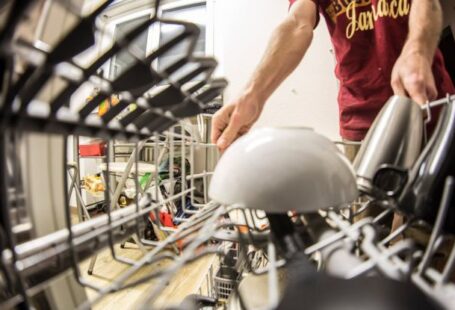Small space composting can be a challenging but rewarding endeavor for those looking to reduce waste and create nutrient-rich soil for their plants. While traditional composting methods may not be feasible for those living in apartments or with limited outdoor space, there are practical tips that can help you successfully compost in small areas. By utilizing these strategies, you can turn your food scraps and yard waste into a valuable resource for your garden.
Choosing the Right Container
Selecting the right container is crucial when it comes to small space composting. Look for compact bins or containers that can easily fit in your kitchen, balcony, or closet. Consider options such as countertop compost bins, worm bins, or stackable bins that can be kept indoors. These containers are designed to control odors and moisture, making them ideal for small living spaces.
Balancing Your Compost
Achieving the right balance of green and brown materials is essential for successful composting. Green materials, such as fruit and vegetable scraps, coffee grounds, and grass clippings, provide nitrogen, while brown materials, such as leaves, straw, and paper, provide carbon. Aim for a ratio of roughly 2:1 brown to green materials to ensure proper decomposition. By maintaining this balance, you can speed up the composting process and prevent odors and pests.
Aerating Your Compost
Proper aeration is key to speeding up the decomposition process and preventing your compost from becoming compacted. To aerate your compost, simply turn the pile with a pitchfork or compost turner every few weeks. If you’re using a closed container, consider purchasing a compost aerator tool to mix the materials effectively. Adequate aeration allows oxygen to reach the microorganisms responsible for breaking down the organic matter, resulting in faster composting.
Managing Moisture Levels
Maintaining the right moisture levels in your compost pile is essential for the decomposition process. Compost should feel like a damp sponge – not too wet, not too dry. If your compost is too dry, add water gradually to moisten it. Conversely, if it’s too wet, mix in dry brown materials like shredded paper or leaves. Monitoring and adjusting the moisture levels regularly will help prevent your compost from becoming too soggy or too dry, ensuring optimal decomposition.
Avoiding Common Composting Pitfalls
While composting in a small space has its challenges, there are common pitfalls that you can avoid with proper management. Avoid adding meat, dairy, or oily foods to your compost, as they can attract pests and create unpleasant odors. Additionally, steer clear of using pet waste or treated wood products in your compost, as they can introduce harmful pathogens or chemicals. By being mindful of what you add to your compost and following best practices, you can create high-quality compost in a small space.
Utilizing Compost in Your Garden
Once your compost is ready, it’s time to reap the benefits in your garden. Use your finished compost as a nutrient-rich soil amendment to improve the health and vitality of your plants. Mix compost into planting beds, top-dress containers, or create compost tea to nourish your garden naturally. The organic matter in compost helps retain moisture, suppresses weeds, and provides essential nutrients for plant growth. By incorporating compost into your gardening routine, you can reduce waste, save money on fertilizers, and promote a healthy ecosystem in your garden.
Maximizing Your Small Space Composting Efforts
With the right tools and techniques, small space composting can be a sustainable and fulfilling practice for urban dwellers and those with limited outdoor space. By choosing the right container, balancing your compost materials, aerating regularly, managing moisture levels, avoiding common pitfalls, and utilizing compost in your garden, you can successfully compost in small areas. Embrace the challenge of small space composting and enjoy the rewards of creating nutrient-rich soil for your plants while reducing your environmental impact.





